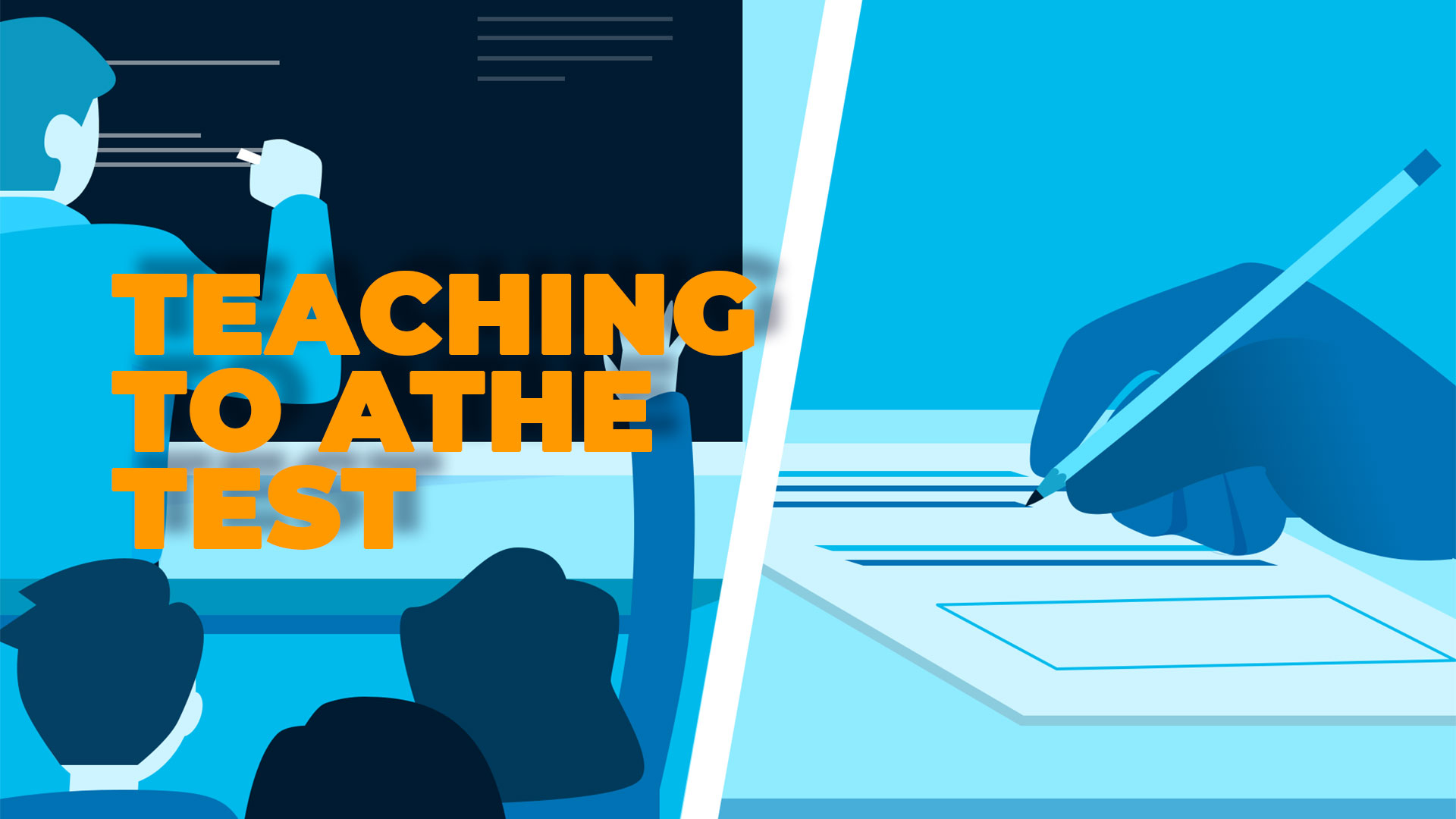DECEMBER 2023, waiting for the New Year to come, I find myself in a family gathering overwhelmed by the festive greetings and exchange of the new year resolutions! As always, I fancy the company of the little kids.
I have collected some literature books that my teenage kids don’t read anymore and I offer them to my 8-year-old niece. She holds the books; she doesn’t even open the first page and says: “But aunt I will not read them. I don’t like reading books. I don’t like anything that has to do with books.” Astonished I look at her rucksack and ask her: “Yes but you carry something in your bag, is that drawing books?” Her mum pops up and tells her “Come on show your aunt what is inside” the 8- year-old girl opens the rucksack and takes out a palette with make-up stuff and other bags with equipment that to my mind – only make-up artists are supposed to have. And the mother goes on in a flamboyant manner: “She’s going to be a beautician when she grows up. That’s a job that one can earn money from”. The little girl leaving the books aside grabs the make-up stuff and cheers “ Come auntie, I will make you over !” and starts putting make up on me watching out for trivial details and using the appropriate lexis she has frequently watched on videos in the social media as she explained to me.
As I was turning into a “beauty” indulging in the treatment of those little fingers, a Professor from the English Language and Literature Faculty of the National and Kapodistrian University of Athens came to my mind back then when he was talking to us about the Pygmalion Effect or self-fulfilling prophesy in the subject of Didactics. “What the teacher expects from a student actually influences and determines the student’s performance”. When you expect great things from a learner s/he will strive to make it happen and vice versa: when you express your low expectations from a student’s part it’s almost possible that s/he will perform low in a subject.
Clearly, my intention is not to judge the mother’s attitude nor the child’s pastime or preferences as I believe we are all specimens of the Pygmalion effect. Honestly, I do not intend to favour one job over the other and I indeed believe that a beautician does a rather important service. Surely, we have read lots of analysis on the subject and I do not intend to repeat all this. But it is such a vivid, – astonishing to tell the truth, – first hand example of what Robert Merton coined as the Self-fulfilling Prophesy in 1984 that I wanted so much to share with you as all of us frequently hear or witness situations of children who really make us wonder how they know and behave like adults and even how their dreams and aspirations are determined.
Others’ expectations influence their behavior towards us. Others’ behavior towards us influences the way we see ourselves. The way we see ourselves affects the way we behave. The way we behave affects other peoples’ behavior and can reinforce their expectations. (Eden,1984)
So, the little girl is supported by the person in authority- that’s her mother here,- to make plans and practice a job. She “sees” herself as a beautician in an age so far away from career orientation worries! Quite clearly her mother’s expectations define her pastime as she carries all the relevant stuff and even believes that this is her identity and not the books.
The 8 year-old- girl searches on the TIK TOK and Instagram videos how to treat clients and picks up vocabulary and adopts her personal style accordingly.
Psychologists Rosenthal and Jacobson studied the Pygmalion effect mentioning that a teacher’s expectation can affect a child’s behavior even unconsciously. The important thing is that the effect is not a momentary reaction but a process of self-sufficiency, motivation and reference (Eden,1984). As the myth goes, Pygmalion the sculptor, dissatisfied with other women’s’ beauty, made Galatea the beautiful piece of art that he fell in love with. So, he asked from Venus to bring her to life. And they lived together ever after. The prophecy starts as a false definition of a situation and evokes such a behavior that evolves so as to make the false definition come true (Merton,1984) .
The point I want to make is that we as parents and teachers or managers and facilitators in our jobs, regularly make “false definitions” of a situation determining a child’s preferences, academic performance or an employee’s performance. It is crucial though that we realise the severity of the impact our words have on others, here, on a small girl who is copying others’ attitudes and is in a fragile age that the environment around her is so influential even unconsciously. Undoubtedly as she grows up, several circumstances will affect the final decision of this child, but why should we influence the child the way we want? What if we falsely preoccupy and mislead the little mind? It is us who need to take the responsibility of our position in the world in general and as role models more specifically and try not to reflect our dreams and desires on the young minds who take us so seriously.
When the self-fulfilling prophesy…killed the pastime of reading
When the self-fulfilling prophesy…killed the pastime of reading
By Giota Panou*, English Language Teacher
DECEMBER 2023, waiting for the New Year to come, I find myself in a family gathering overwhelmed by the festive greetings and exchange of the new year resolutions! As always, I fancy the company of the little kids.
I have collected some literature books that my teenage kids don’t read anymore and I offer them to my 8-year-old niece. She holds the books; she doesn’t even open the first page and says: “But aunt I will not read them. I don’t like reading books. I don’t like anything that has to do with books.” Astonished I look at her rucksack and ask her: “Yes but you carry something in your bag, is that drawing books?” Her mum pops up and tells her “Come on show your aunt what is inside” the 8- year-old girl opens the rucksack and takes out a palette with make-up stuff and other bags with equipment that to my mind – only make-up artists are supposed to have. And the mother goes on in a flamboyant manner: “She’s going to be a beautician when she grows up. That’s a job that one can earn money from”. The little girl leaving the books aside grabs the make-up stuff and cheers “ Come auntie, I will make you over !” and starts putting make up on me watching out for trivial details and using the appropriate lexis she has frequently watched on videos in the social media as she explained to me.
As I was turning into a “beauty” indulging in the treatment of those little fingers, a Professor from the English Language and Literature Faculty of the National and Kapodistrian University of Athens came to my mind back then when he was talking to us about the Pygmalion Effect or self-fulfilling prophesy in the subject of Didactics. “What the teacher expects from a student actually influences and determines the student’s performance”. When you expect great things from a learner s/he will strive to make it happen and vice versa: when you express your low expectations from a student’s part it’s almost possible that s/he will perform low in a subject.
Clearly, my intention is not to judge the mother’s attitude nor the child’s pastime or preferences as I believe we are all specimens of the Pygmalion effect. Honestly, I do not intend to favour one job over the other and I indeed believe that a beautician does a rather important service. Surely, we have read lots of analysis on the subject and I do not intend to repeat all this. But it is such a vivid, – astonishing to tell the truth, – first hand example of what Robert Merton coined as the Self-fulfilling Prophesy in 1984 that I wanted so much to share with you as all of us frequently hear or witness situations of children who really make us wonder how they know and behave like adults and even how their dreams and aspirations are determined.
Others’ expectations influence their behavior towards us. Others’ behavior towards us influences the way we see ourselves. The way we see ourselves affects the way we behave. The way we behave affects other peoples’ behavior and can reinforce their expectations. (Eden,1984)
So, the little girl is supported by the person in authority- that’s her mother here,- to make plans and practice a job. She “sees” herself as a beautician in an age so far away from career orientation worries! Quite clearly her mother’s expectations define her pastime as she carries all the relevant stuff and even believes that this is her identity and not the books.
The 8 year-old- girl searches on the TIK TOK and Instagram videos how to treat clients and picks up vocabulary and adopts her personal style accordingly.
Psychologists Rosenthal and Jacobson studied the Pygmalion effect mentioning that a teacher’s expectation can affect a child’s behavior even unconsciously. The important thing is that the effect is not a momentary reaction but a process of self-sufficiency, motivation and reference (Eden,1984). As the myth goes, Pygmalion the sculptor, dissatisfied with other women’s’ beauty, made Galatea the beautiful piece of art that he fell in love with. So, he asked from Venus to bring her to life. And they lived together ever after. The prophecy starts as a false definition of a situation and evokes such a behavior that evolves so as to make the false definition come true (Merton,1984) .
The point I want to make is that we as parents and teachers or managers and facilitators in our jobs, regularly make “false definitions” of a situation determining a child’s preferences, academic performance or an employee’s performance. It is crucial though that we realise the severity of the impact our words have on others, here, on a small girl who is copying others’ attitudes and is in a fragile age that the environment around her is so influential even unconsciously. Undoubtedly as she grows up, several circumstances will affect the final decision of this child, but why should we influence the child the way we want? What if we falsely preoccupy and mislead the little mind? It is us who need to take the responsibility of our position in the world in general and as role models more specifically and try not to reflect our dreams and desires on the young minds who take us so seriously.
By Giota Panou*, English Language Teacher
DECEMBER 2023, waiting for the New Year to come, I find myself in a family gathering overwhelmed by the festive greetings and exchange of the new year resolutions! As always, I fancy the company of the little kids.
I have collected some literature books that my teenage kids don’t read anymore and I offer them to my 8-year-old niece. She holds the books; she doesn’t even open the first page and says: “But aunt I will not read them. I don’t like reading books. I don’t like anything that has to do with books.” Astonished I look at her rucksack and ask her: “Yes but you carry something in your bag, is that drawing books?” Her mum pops up and tells her “Come on show your aunt what is inside” the 8- year-old girl opens the rucksack and takes out a palette with make-up stuff and other bags with equipment that to my mind – only make-up artists are supposed to have. And the mother goes on in a flamboyant manner: “She’s going to be a beautician when she grows up. That’s a job that one can earn money from”. The little girl leaving the books aside grabs the make-up stuff and cheers “ Come auntie, I will make you over !” and starts putting make up on me watching out for trivial details and using the appropriate lexis she has frequently watched on videos in the social media as she explained to me.
As I was turning into a “beauty” indulging in the treatment of those little fingers, a Professor from the English Language and Literature Faculty of the National and Kapodistrian University of Athens came to my mind back then when he was talking to us about the Pygmalion Effect or self-fulfilling prophesy in the subject of Didactics. “What the teacher expects from a student actually influences and determines the student’s performance”. When you expect great things from a learner s/he will strive to make it happen and vice versa: when you express your low expectations from a student’s part it’s almost possible that s/he will perform low in a subject.
Clearly, my intention is not to judge the mother’s attitude nor the child’s pastime or preferences as I believe we are all specimens of the Pygmalion effect. Honestly, I do not intend to favour one job over the other and I indeed believe that a beautician does a rather important service. Surely, we have read lots of analysis on the subject and I do not intend to repeat all this. But it is such a vivid, – astonishing to tell the truth, – first hand example of what Robert Merton coined as the Self-fulfilling Prophesy in 1984 that I wanted so much to share with you as all of us frequently hear or witness situations of children who really make us wonder how they know and behave like adults and even how their dreams and aspirations are determined.
Others’ expectations influence their behavior towards us. Others’ behavior towards us influences the way we see ourselves. The way we see ourselves affects the way we behave. The way we behave affects other peoples’ behavior and can reinforce their expectations. (Eden,1984)
So, the little girl is supported by the person in authority- that’s her mother here,- to make plans and practice a job. She “sees” herself as a beautician in an age so far away from career orientation worries! Quite clearly her mother’s expectations define her pastime as she carries all the relevant stuff and even believes that this is her identity and not the books.
The 8 year-old- girl searches on the TIK TOK and Instagram videos how to treat clients and picks up vocabulary and adopts her personal style accordingly.
Psychologists Rosenthal and Jacobson studied the Pygmalion effect mentioning that a teacher’s expectation can affect a child’s behavior even unconsciously. The important thing is that the effect is not a momentary reaction but a process of self-sufficiency, motivation and reference (Eden,1984). As the myth goes, Pygmalion the sculptor, dissatisfied with other women’s’ beauty, made Galatea the beautiful piece of art that he fell in love with. So, he asked from Venus to bring her to life. And they lived together ever after. The prophecy starts as a false definition of a situation and evokes such a behavior that evolves so as to make the false definition come true (Merton,1984) .
The point I want to make is that we as parents and teachers or managers and facilitators in our jobs, regularly make “false definitions” of a situation determining a child’s preferences, academic performance or an employee’s performance. It is crucial though that we realise the severity of the impact our words have on others, here, on a small girl who is copying others’ attitudes and is in a fragile age that the environment around her is so influential even unconsciously. Undoubtedly as she grows up, several circumstances will affect the final decision of this child, but why should we influence the child the way we want? What if we falsely preoccupy and mislead the little mind? It is us who need to take the responsibility of our position in the world in general and as role models more specifically and try not to reflect our dreams and desires on the young minds who take us so seriously.




